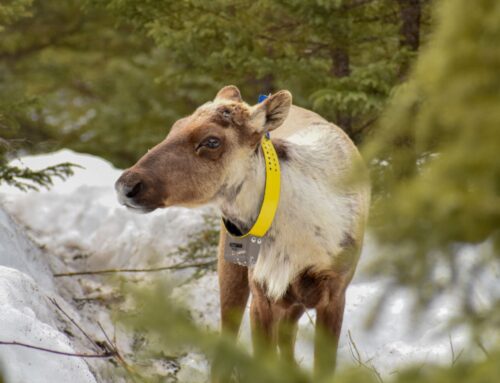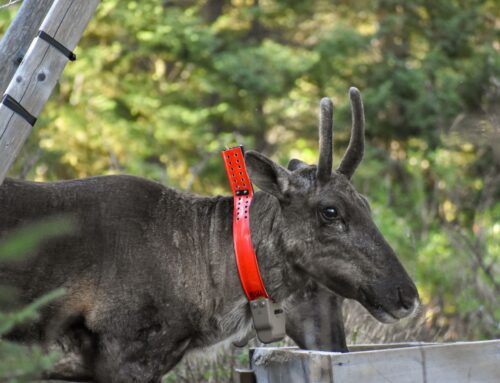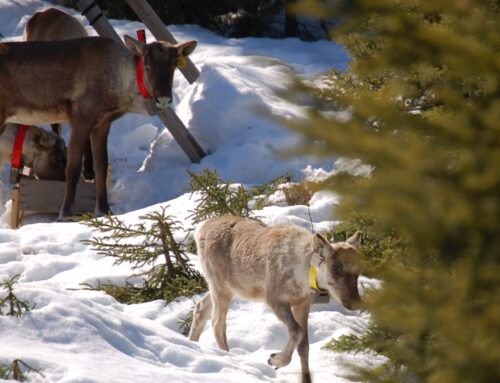The study confirms that the caribou’s territory is highly degraded.
Source: Radio Canada – Marc-André Landry
The Council of the Anishnabe Nation of Lac-Simon unveiled Thursday a scientific report that confirms the importance of restoring the habitat of the Val-d’Or caribou to ensure its survival.
The study commissioned by Lac-Simon was conducted by biologist Martin-Hugues St-Laurent, from the Biology Department of the Université du Québec à Rimouski.
Using telemetric data from GPS collars placed on caribou and wolves, the researchers were able to better understand the habitat and territory choices of these two species. The study confirms that the Val-d’Or caribou’s territory is highly degraded.
The models show that habitats suitable for caribou are becoming rare, while forest roads clearly favour their predators, wolves,” says Geneviève Tremblay, a biologist at Lac-Simon. The goal was to be able to identify the portions of territories to be restored to give the greatest possible gain in habitats favourable to caribou recovery.
To have the best chance of success, the study targeted a habitat within a 10-km radius around Decelles Lake, but also the Sabourin Lake sector and south of the latter. In addition to a permanent moratorium on logging, the focus is on restoring forest stands, but also on closing and revegetating logging roads, which would obviously have impacts for all users.
We know that this is an important issue and this is no doubt why we are still looking at solutions 30 years later,” deplores Geneviève Tremblay. What is not acceptable for us is to say to ourselves that we can continue to do the same types of development and lose species as if nothing had happened.
Urgency to act
The Lac-Simon authorities hope that this study will help the Ministère des Forêts, de la Faune et des Parcs on the best actions to take to protect the Val-d’Or caribou herd, which now numbers only six animals.
That said, Geneviève Tremblay is aware that the solutions proposed in the study do not ensure the viability of the current herd and that other actions will have to be taken in addition to restoring their habitat.
We know that restoration is an obligatory step, but it is not going to guarantee survival,” says the biologist. It necessarily takes joint action, such as significant depredation and almost certainly the reintroduction of new animals into the herd. You have to combine several actions and continuously study their viability to have any chance of success.
Above all, Lac-Simon urges Minister Pierre Dufour to act quickly.
We cannot continue to wait, especially since we already have one of the caribou that died in the pen this summer. What’s the point of penning them if we don’t do anything else? Just because we don’t have all the knowledge in hand doesn’t justify not taking action right away. There are enough studies and analyses to move forward with concrete actions,” adds Geneviève Tremblay.
Minister Dufour intends to unveil his national strategy on woodland caribou in 2021. Last August, however, he hoped to be able to quickly put forward solutions for the caribou situation in Val-d’Or.





